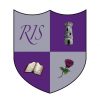EFL / English as a Foreign Language
Guiding Principles
English as a Foreign Language is the entry level program designed to familiarize students with core components and skills needed to acquire the English language. The EFL environment is offered primarily in English with bilingual support and a vehicle for understanding and confidence building. Students should learn to “think in English” for limited key language elements as a vital means for progress. The Bilingual community - While there is ample opportunity for EFL students to interact in a native English environment and with native English materials, the EFL student chooses to limit their exposure with such experiences often due to shyness or lack of confidence. One of the main goals of RIS is to help students overcome any issues that prevent them from entering the bilingual world.
Core Components
Balanced Approach: Listening, Speaking, Reading, Writing Academic: EFL studies emphasizes English acquisition through the classroom experience and limited exposure to a native English Environment. Communicative: Emphasis on using simple vocabulary and grammar structures to demonstrate leveled understanding Real World Application: Use of English in a native environment or with native resources is encouraged as a method to understand the student’s level and improvement over time
Skills
Social: The EFL student works to confidently use English in the academic setting and is encouraged to expand English use into the native English environment. Academic: Basic computer, organizational, and study skills support language acquisition and are encouraged as part of the EFL program.
